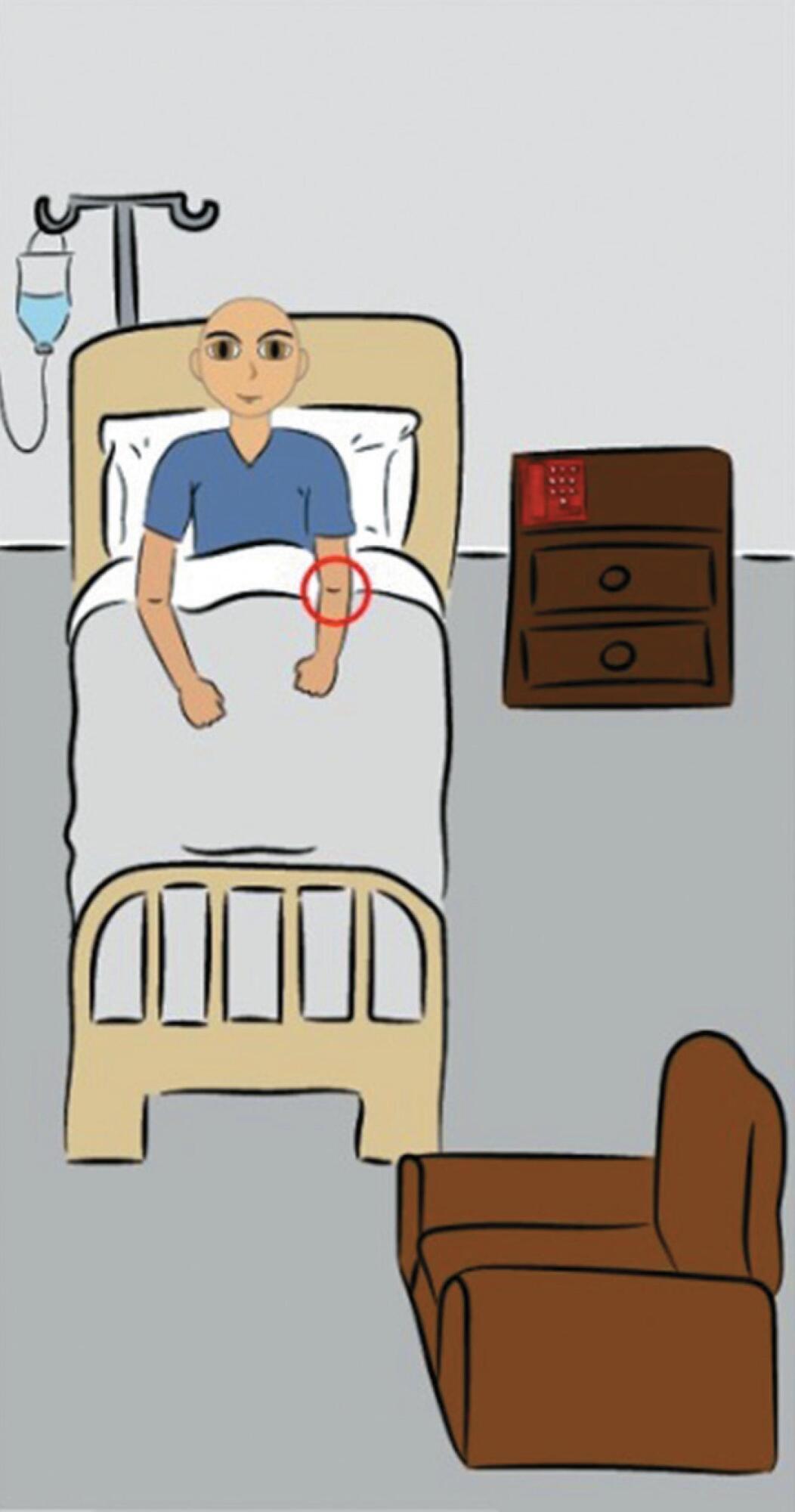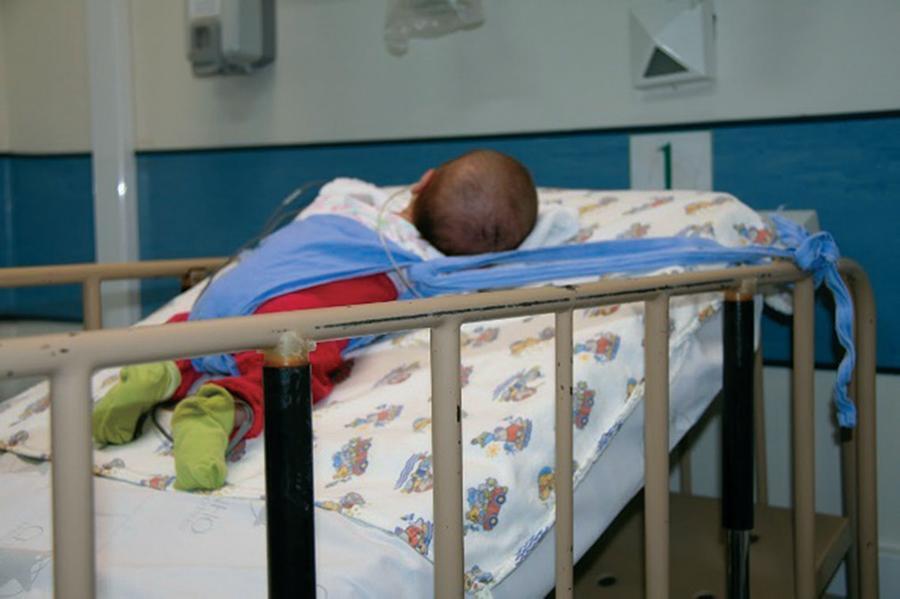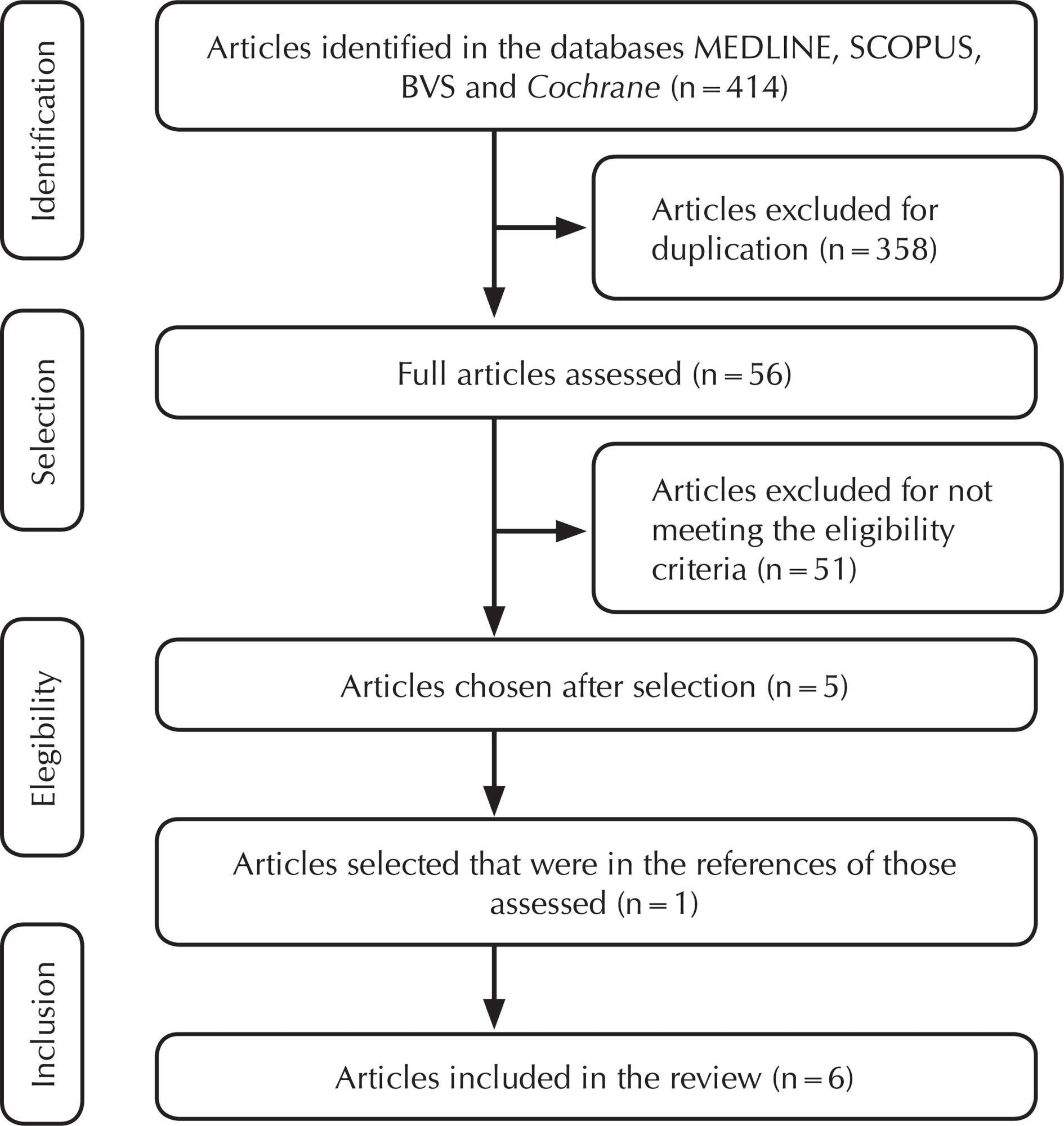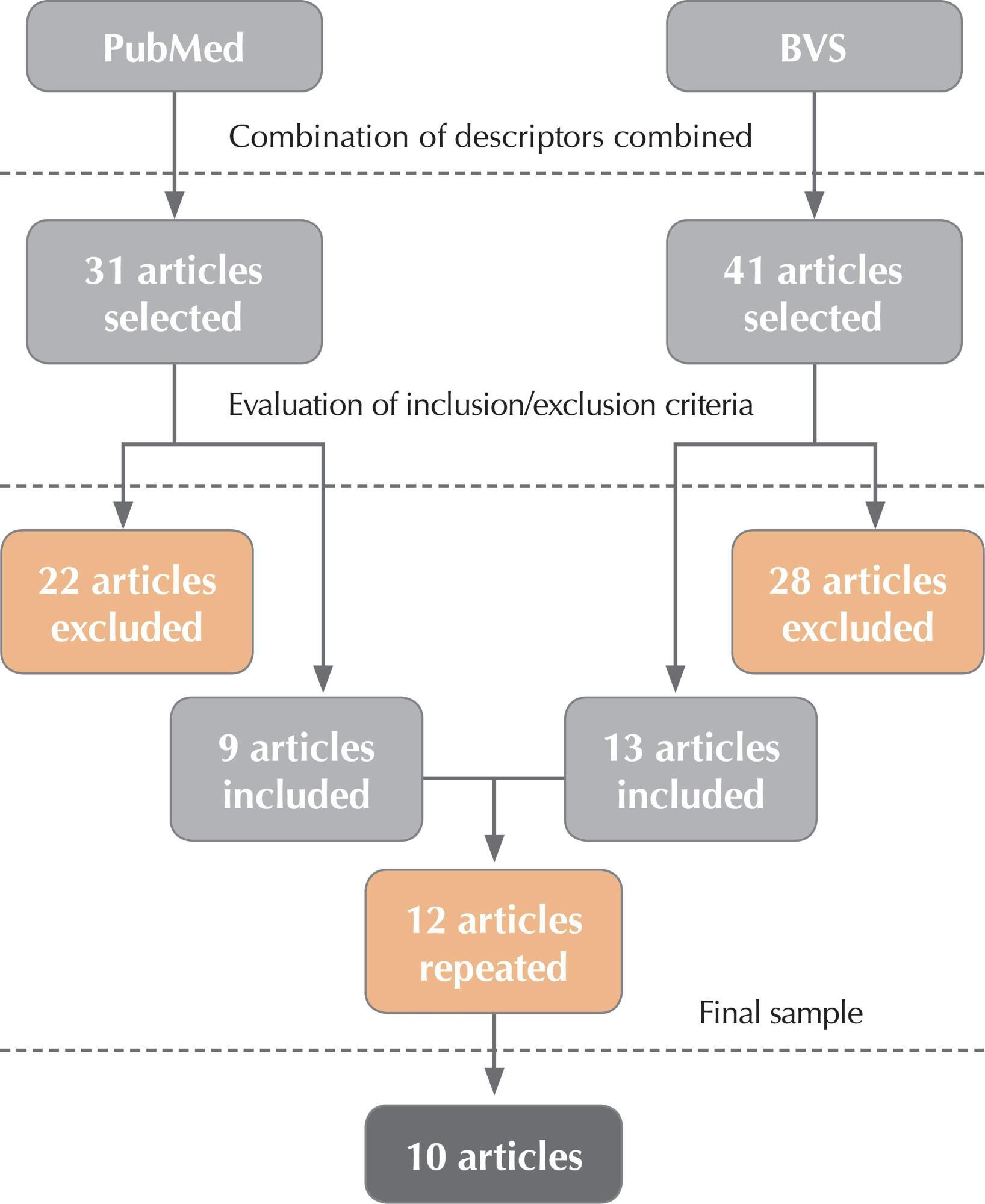-
01-01-2018
The quality of education in times of new National Curriculum Parameters
Revista Brasileira de Enfermagem. 2018;71:1485-1486
Abstract
The quality of education in times of new National Curriculum Parameters
Revista Brasileira de Enfermagem. 2018;71:1485-1486
DOI 10.1590/0034-7167-201871sup401
Views0The semantic impossibility of delimiting accurately the term “quality” challenges us. When one thinks of quality, it is common to ask questions related to the processes themselves or to the results achieved with emphasis on the satisfaction of those who participated in such processes. Thus, “quality” refers to the skills to carry out successful processes […]See more -
01-01-2018
A qualidade da educação em tempos de novas Diretrizes Curriculares Nacionais
Revista Brasileira de Enfermagem. 2018;71:1485-1486
Abstract
A qualidade da educação em tempos de novas Diretrizes Curriculares Nacionais
Revista Brasileira de Enfermagem. 2018;71:1485-1486
DOI 10.1590/0034-7167-201871sup401
Views0A impossibilidade semântica de se delimitar e demarcar com precisão o termo “qualidade” nos desafia. Quando se pensa em qualidade, é comum surgir indagações ligadas aos processos em si ou aos resultados alcançados com ênfase à satisfação de quem participou de tais processos. Assim, “qualidade” remete a competências para realizar processos com êxito e gerar […]See more -
EXPERIENCE REPORT01-01-2018
Caring for the future: decrease in infant mortality in Maranhão State
Revista Brasileira de Enfermagem. 2018;71:1479-1484
Abstract
EXPERIENCE REPORTCaring for the future: decrease in infant mortality in Maranhão State
Revista Brasileira de Enfermagem. 2018;71:1479-1484
DOI 10.1590/0034-7167-2017-0245
Views0See moreABSTRACT
Objective:
To report on the experience and care provided by the “Caring for the future” program to decrease infant mortality in 17 municipalities of Maranhão, in a proposal work of the Secretariat of Basic Care, in partnership with the Non-Governmental Organization called Centro Popular de Cultura e Desenvolvimento (Popular Center for Culture and Development/PCCD) from 2009 to 2015.
Method:
Experience Report of community care that made it possible to create and strengthen solidary relationships among community members.
Results:
The program decreased infant mortality rate and created in the supported communities a platform of health support, uniting information and care in Primary Care. The program trained 34 “Guardian Angels” and 170 “Supportive Caregivers”, mapped seven thousand “luminous spots” and trained more than 7,000 caregivers in health. It served 17 municipalities, 27,191 pregnant women, 291,266 families.
Final considerations:
The program was a catalyst for actions: it unveiled hidden resources in the community, awakened collective responsibility, offered training and built solidary relationships.
-
EXPERIENCE REPORT01-01-2018
Application program to prepare child/family for venipuncture: experience report
Revista Brasileira de Enfermagem. 2018;71:1474-1478
Abstract
EXPERIENCE REPORTApplication program to prepare child/family for venipuncture: experience report
Revista Brasileira de Enfermagem. 2018;71:1474-1478
DOI 10.1590/0034-7167-2017-0386
Views0See moreABSTRACT
Objective:
To report the experience of development of an application program to prepare child and family for venipuncture.
Method:
Experience report on an application program developed in the professional nursing master’s degree program in partnership with engineering undergraduate students.
Results:
The application program allows the child to understand the venipuncture procedure in a ludic and interactive manner. Its development occurred in three stages: identification of client’s needs, definition of components, and prototype elaboration.
Final considerations:
The application program, besides being directed to care and education of children and families, is able to meet the nurses’ needs to prepare them for venipuncture. Moreover, it is worth mentioning the importance of multidisciplinary approach for the concretion of similar projects.

-
EXPERIENCE REPORT01-01-2018
Applicability of Orem: training of caregiver of infant with Robin Sequence
Revista Brasileira de Enfermagem. 2018;71:1469-1473
Abstract
EXPERIENCE REPORTApplicability of Orem: training of caregiver of infant with Robin Sequence
Revista Brasileira de Enfermagem. 2018;71:1469-1473
DOI 10.1590/0034-7167-2016-0562
Views0See moreABSTRACT
Objective:
to report the nurses’ experience in relation to the training of caregivers of infants with Isolated Robin Sequence (IRS) for maintaining care after hospital discharge from the perspective of Self-Care Theoretical Framework.
Method:
the following categories were considered in this experience report: self-care action, self-care capacity, therapeutic self-care demand, self-care deficit, and nursing system. The nursing system was wholly compensatory and supportive-educative.
Results:
caregivers’ training by nurses results in the acquisition of technical skills and specific knowledge related to the infant’s positioning in elevated ventral decubitus, nasopharyngeal intubation, feeding-facilitating techniques and care with the feeding tube.
Final considerations:
the continuity of home care is guaranteed from caregivers’ training for the therapeutic demand.

-
REVIEW01-01-2018
The effectiveness of post-partum interventions to prevent urinary incontinence: a systematic review
Revista Brasileira de Enfermagem. 2018;71:1460-1468
Abstract
REVIEWThe effectiveness of post-partum interventions to prevent urinary incontinence: a systematic review
Revista Brasileira de Enfermagem. 2018;71:1460-1468
DOI 10.1590/0034-7167-2017-0338
Views0See moreABSTRACT
Objective:
to assess the effectiveness of post-partum interventions to prevent urinary incontinence: a systematic review.
Method:
systematic review of randomized controlled studies conducted in the MEDLINE, Cochrane, Scopus and the Virtual Library on Health (Biblioteca Virtual em Saúde, BVS) databases.
Results:
six articles were included in this review. All studies used the Pelvic Floor Muscle Training as the main procedure to prevent urinary incontinence. The results pointed to a positive and effective intervention in the post-partum period.
Conclusion:
there is evidence that programs of exercise of the pelvic floor musculature performed both in the immediate and late post-partum result in a significant increase in muscle strength and contribute to prevent urinary incontinence.

-
REVIEW01-01-2018
Effects of different hormonal contraceptives in women’s blood pressure values
Revista Brasileira de Enfermagem. 2018;71:1453-1459
Abstract
REVIEWEffects of different hormonal contraceptives in women’s blood pressure values
Revista Brasileira de Enfermagem. 2018;71:1453-1459
DOI 10.1590/0034-7167-2017-0317
Views0See moreABSTRACT
Objective:
To identify evidence in the literature of the relationship between the use of different hormonal contraceptive methods and alterations in women’s blood pressure values.
Method:
This is an integrative literature review, consisting of ten scientific articles published in PubMed and BVS, between 2012 and 2016, selected by keywords, available fully and free of charge, in English, Portuguese, or Spanish.
Results:
The articles showed that exogenous estrogen helps in the activation of the renin-angiotensin-aldosterone system causing hypertensive effects even in small doses; and that combined use with drospirenone reduces these effects. Routes of administration without passage through the liver and use of isolated progestin showed promising results in reducing the effects on blood pressure.
Conclusion:
There is evidence in the literature of pressure alterations associated with different hormonal contraceptives and that personal history of morbidities are to be considered in an attempt to reduce the effects on the cardiovascular system.

-
RESEARCH01-01-2018
Accuracy of the defining characteristics of the nursing diagnosis for fatigue in women under radiotherapy
Revista Brasileira de Enfermagem. 2018;71:1445-1452
Abstract
RESEARCHAccuracy of the defining characteristics of the nursing diagnosis for fatigue in women under radiotherapy
Revista Brasileira de Enfermagem. 2018;71:1445-1452
DOI 10.1590/0034-7167-2017-0549
Views0See moreABSTRACT
Objective:
To evaluate the accuracy of the defining characteristics of the nursing diagnosis for “fatigue in women with breast cancer under radiotherapy”.
Method:
Study of diagnostic accuracy, with cross-sectional design, performed in 130 women with breast cancer under radiation treatment. A data collection instrument was used to evaluate clinical socio-demographics and to investigate the presence or absence of defining characteristics for fatigue. The latent class analysis model was applied to assess accuracy measurements of the characteristics identified.
Results:
Fatigue diagnosis was present in 21.9% of the women. The characteristic which showed the highest sensitivity was “Impaired capacity in maintaining the usual level of physical activity”, while “Impaired capacity in maintaining usual routines” and “Lack of interest about the surrounding environment” presented greater specificity.
Conclusion:
Accurate diagnostics allow devising an action plan directed to the patients’ real needs.
-
ORIGINAL ARTICLE12-05-2019
Nurse care for the hospitalized elderly’s spiritual dimension
Revista Brasileira de Enfermagem. 2019;72:236-242
Abstract
ORIGINAL ARTICLENurse care for the hospitalized elderly’s spiritual dimension
Revista Brasileira de Enfermagem. 2019;72:236-242
DOI 10.1590/0034-7167-2018-0685
Views0See moreABSTRACT
Objective:
to analyze the nurse care for the spiritual hospitalized elderly’s dimension.
Method:
a qualitative study, based on Jean Watson’s Theory of Human Caring. The study included 17 nurses working in a geriatric center in Salvador City, Bahia State, Brazil. The collection of testimonies occurred between January and April of 2018, through an interview.
Results:
spiritual care were dialogue, encouragement and respect for religious activities, embracement, empathy. One of the obstacles to providing this care was the lack of preparation in accessing the elderly’s spiritual dimension.
Final considerations:
spirituality is a dimension of human and holistic nursing care. Caring for the spirit contributes to foster transpersonal care. The difficulty may be in the lack of nurses’ preparation. It is necessary that they cultivate and live their own spirituality, transmitting the understanding in each care relationship.
-
REVIEW12-13-2019
Interfaces of vulnerability dimensions in violence against children
Revista Brasileira de Enfermagem. 2019;72:343-347
Abstract
REVIEWInterfaces of vulnerability dimensions in violence against children
Revista Brasileira de Enfermagem. 2019;72:343-347
DOI 10.1590/0034-7167-2018-0463
Views0See moreABSTRACT
Objective:
present and discuss the potential use of the concept of vulnerability for the development of practices to address violence against children.
Method:
this is a theoretical study that presents the characteristics of the phenomenon of violence against children, to which the concept of vulnerability is applied.
Results:
proposal of a framework for the analysis of violence against children in the perspective of vulnerability, creating individual and collective dimensions. Violence against children, when analyzed in the perspective of this concept, broadens the understanding of this phenomenon, as it exposes aspects and conditions from outside the family that are co-responsible for the occurrence of this phenomenon.
Conclusion:
developing studies to identify the vulnerability of children to violence is essential for the development of practices to address this issue.
-
ORIGINAL ARTICLE09-06-2022
Evaluating the psychometric properties of the eHealth Literacy Scale in Brazilian adults
Revista Brasileira de Enfermagem. 2022;75(1):e20201320
Abstract
ORIGINAL ARTICLEEvaluating the psychometric properties of the eHealth Literacy Scale in Brazilian adults
Revista Brasileira de Enfermagem. 2022;75(1):e20201320
DOI 10.1590/0034-7167-2020-1320
Views0See moreABSTRACT
Objective:
To translate and adapt the eHealth Literacy Scale for the cultural reality of Brazil and to evaluate the psychometric properties of its Brazilian Portuguese version.
Methods:
The instrument was translated and adapted to Brazilian Portuguese and applied to a sample of 502 individuals from 18 to 80 years old who lived in the surrounding areas of six Family Health Units of a city in the countryside of the state of São Paulo, Brazil. The data was evaluated using exploratory and confirmatory factor analysis, item response theory, and instrument reliability measures (Cronbach’s alpha and McDonald’s omega).
Results:
The eHealth Literacy Scale – Brazilian version (eHEALS-Br) presented an excellent internal consistency (α = 0.95 e ω = 0.95), with only one dimension and an explained variation of 81.79%.
Conclusions:
The Brazilian version of the instrument showed excellent psychometric properties to measure the levels of digital health literacy in adults from the country.

-
ORIGINAL ARTICLE02-25-2022
Factors associated with stress, anxiety and depression in nursing professionals in the hospital context
Revista Brasileira de Enfermagem. 2022;75:e20210263
Abstract
ORIGINAL ARTICLEFactors associated with stress, anxiety and depression in nursing professionals in the hospital context
Revista Brasileira de Enfermagem. 2022;75:e20210263
DOI 10.1590/0034-7167-2021-0263
Views0See moreABSTRACT
Objective:
to determine the factors associated with stress, anxiety and depression, concomitantly, in nursing professionals who work in the hospital context.
Methods:
a quantitative and cross-sectional study with 353 nursing professionals from a hospital. A sociodemographic questionnaire and the Depression, Anxiety and Stress Scale-21 were used. Data were subjected to descriptive statistical analysis, difference and correlation tests.
Results:
the main factors associated with stress, anxiety and depression, concomitantly, were being female, compromised family and social support, lack of autonomy at work, hostile relationship with colleagues, lack of professional recognition and satisfaction, feeling of being overwhelmed and insecurity.
Conclusions:
demographic, physiological, social and work factors impact the levels of stress, anxiety and depression in nursing professionals. The adoption of coping strategies for modifiable factors should be considered, in order to provide better quality of life for these professionals.
-
EXPERIENCE REPORT04-03-2020
Use of webQDA software on qualitative nursing research: an experience report
Revista Brasileira de Enfermagem. 2020;73(3):e20180411
Abstract
EXPERIENCE REPORTUse of webQDA software on qualitative nursing research: an experience report
Revista Brasileira de Enfermagem. 2020;73(3):e20180411
DOI 10.1590/0034-7167-2018-0411
Views0See moreABSTRACT
Objectives:
to report the user experience of the webQDA software in the support of qualitative data analysis about health literacy of older adults.
Methods:
quasi-experimental research developed from January 2014 to January 2015, with 118 older adults, all of whom were interviewed to assess the level of health literacy. Interviews were carried out before and after four educational interventions, according to Freire’s method named Culture Circle. The interviews were transcribed and entered in the software, which highlighted the analytical categories.
Results:
the systems of sources, interpretative encoding and questioning of the data available in the software allowed the construction of three categories for the literacy levels and four categories for their dimensions.
Final considerations:
We concluded that the webQDA software enables the structured encoding of qualitative materials, ensuring faster and effective management of data with systematization and analytical transparency.

-
ORIGINAL ARTICLE10-21-2019
Permanent education for good practices in the prevention of pressure injury: almost-experiment
Revista Brasileira de Enfermagem. 2019;72(6):1646-1652
Abstract
ORIGINAL ARTICLEPermanent education for good practices in the prevention of pressure injury: almost-experiment
Revista Brasileira de Enfermagem. 2019;72(6):1646-1652
DOI 10.1590/0034-7167-2018-0778
Views0See moreABSTRACT
Objective:
To verify the effectiveness of the educational intervention through the evaluation of nurses’ knowledge about prevention of pressure injury.
Method:
A quasi-experimental study with a single group, carried out with 95 nurses from a teaching hospital in the interior of Minas Gerais, in August and September 2017. As a teaching strategy, the active methodology and hybrid teaching were used, based on the reference of the Method of the Arch of Charles Maguerez. Data were collected from a validated instrument, called the Pieper Knowledge Test, and analyzed by descriptive statistics and Student’s t-test with significance level of p <0.001.
Results:
The mean number of correct answers obtained by the nurses was 78.8% in the pre-test and 88.8% in the post-test, and the difference was statistically significant (p <0.001).
Conclusion:
The educational intervention developed was effective, since it contributed to the improvement of nurses’ knowledge.

-
ORIGINAL ARTICLE06-17-2020
Cardiovascular risk factors: differences between ethnic groups
Revista Brasileira de Enfermagem. 2020;73(4):e20180918
Abstract
ORIGINAL ARTICLECardiovascular risk factors: differences between ethnic groups
Revista Brasileira de Enfermagem. 2020;73(4):e20180918
DOI 10.1590/0034-7167-2018-0918
Views0See moreABSTRACT
Objectives:
to compare the metabolic, anthropometric, tobacco and alcohol consumption indicators considered as risk factors for cardiovascular diseases, as well as the demographic and socioeconomic characteristics between indigenous from Rio Negro, Sateré-Mawé, mixed-race/black and white people living in the city of Manaus.
Methods:
a cross-sectional observational study guided by the STROBE tool. There was a sample of 191 adults of both sexes. Anthropometric measurements, blood pressure and biochemical analyzes were performed. Statistical test was applied to cross color/race/ethnicity variable with the investigated variables.
Results:
indigenous had better metabolic and anthropometric indicators related to cardiovascular diseases than mixed-race/black and white, as well as Sateré-Mawé in relation to Rionegrinos (from Rio Negro).
Conclusions:
the main differences were obesity, dyslipidemia, pre-systemic arterial hypertension/systemic arterial hypertension, and increased circumferences, with a worse situation for mixed-race/black people. The findings indicate differences in risk factors between race/color and ethnicity groups evaluated.
-
ORIGINAL ARTICLE02-10-2020
Nursing practices in a psychological care center
Revista Brasileira de Enfermagem. 2020;73(1):e20180175
Abstract
ORIGINAL ARTICLENursing practices in a psychological care center
Revista Brasileira de Enfermagem. 2020;73(1):e20180175
DOI 10.1590/0034-7167-2018-0175
Views0See moreABSTRACT
Objective:
To analyze the practices developed by nursing professionals in a Psychosocial Care Center (CAPS).
Method:
A qualitative and evaluative research based on the Fourth Generation Assessment and conducted in a CAPS II of Santa Catarina State in 2014. For data collection, semi-structured interviews, field observation, and data recycling group were used with workers. Constant Comparative Method was used for data analysis.
Results:
Practices aimed at the subject and their clinical, social, prevention, treatment and articulation with the health network were identified. Medication care is a specificity of nursing that aims to promote autonomy and social reintegration. There is a need for greater articulation between the nursing and pharmacy staff, as well as creating spaces for users to talk about medication.
Conclusion:
Nursing practices are focused on biopsychosocial care, aiming to deconstruct care models focused on the disease and symptoms.
Search
Search in:
Nuvem de Tags
Adolescente (85) Atenção Primária à Saúde (239) COVID-19 (91) Criança (91) Cuidados de Enfermagem (269) Educação em Enfermagem (151) Educação em Saúde (139) Enfermagem (930) Enfermagem Pediátrica (86) Estudantes de Enfermagem (77) Estudos de Validação (131) Família (87) Idoso (208) Promoção da Saúde (99) Qualidade de Vida (104) Saúde do Trabalhador (86) Saúde Mental (145) Saúde Pública (82) Segurança do Paciente (150) Tecnologia Educacional (100)



